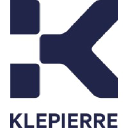🚀 Sign up Free for Public Company Valuation & Insights!
Sign up for free to get access to the best public company valuation and insights. Get started today and unlock the potential of your investments!
Sign Up
Klépierre
Real estate / Real Estate and Retail
At a Glance | Core Facts | Company | Industry | Competitors | Stock Swings | News | Income | Balance | Cash Flow | Growth | Enterprise | Ratios | Metrics | Dividends | Risks | SWOT | Porter's Five Forces | PEST | Score Positive | Clusters | Reports | WebSWOT analysis is a strategic planning tool used to evaluate the strengths, weaknesses, opportunities, and threats of a company. It can provide valuable insights into a company’s current situation and help identify areas for improvement and potential risks.
Strengths:
1. Strong portfolio of properties: Klépierre has a strong portfolio of retail properties, with over 100 shopping centers located across Europe. This gives the company a significant presence in major retail markets, providing a steady source of income.
2. Experienced management team: The company has a highly experienced management team with a proven track record in the retail industry. This enables them to make informed decisions and adapt to changing market conditions.
3. Strong financial performance: Klépierre has consistently delivered strong financial performance over the years, with increasing revenues and profits. This has enabled the company to invest in new properties and expand its operations.
4. Diversified tenant mix: The company’s properties have a diverse mix of tenants, including large national and international retailers, as well as local businesses. This reduces the risk of dependency on a single tenant and provides stability to the company’s revenue.
5. Focus on sustainability: Klépierre has a strong focus on sustainability and has implemented various initiatives to reduce its environmental impact. This not only improves the company’s image but also reduces operational costs in the long term.
Weaknesses:
1. High debt levels: Klépierre has a high level of debt, which can be a cause for concern, especially during times of economic downturn. This may limit the company’s ability to invest in new properties or pursue other growth opportunities.
2. Exposure to European retail market: The majority of Klépierre’s properties are located in Europe, which makes the company vulnerable to any adverse economic or political developments in the region.
3. Outdated properties: Some of the company’s properties may be outdated and in need of renovation or redevelopment. This can be costly and may affect the company’s profitability.
Opportunities:
1. Expansion in emerging markets: Klépierre can look for opportunities to expand its operations in emerging markets, such as Asia and South America, where there is a growing demand for retail properties.
2. Growing e-commerce market: The increasing popularity of e-commerce presents an opportunity for Klépierre to adapt and diversify its business model. The company can explore partnerships with online retailers or invest in technology to enhance the shopping experience in its properties.
3. Acquisitions and partnerships: The company can consider strategic acquisitions or partnerships to strengthen its position in the market and expand its portfolio. This can also help in diversifying its tenant mix and reducing dependency on a particular sector or location.
Threats:
1. Economic downturn: A recession or economic downturn can impact consumer spending and have a negative effect on the retail industry. This can lead to lower occupancy rates, rental income, and property values, affecting Klépierre’s financial performance.
2. Competition: Klépierre faces competition from other retail real estate companies, as well as alternative retail formats such as online shopping and pop-up stores. This could result in reduced occupancy rates and rental prices.
3. Changing consumer behavior: The rise of e-commerce and changing consumer preferences could lead to a decline in foot traffic and sales for Klépierre’s properties. This could have a significant impact on the company’s revenue and profitability.
4. Regulatory and political risks: Changes in regulations or political instability in the regions where Klépierre operates could impact the company’s operations and financial performance. This includes changes in zoning or building codes, tax policies, and labor laws.